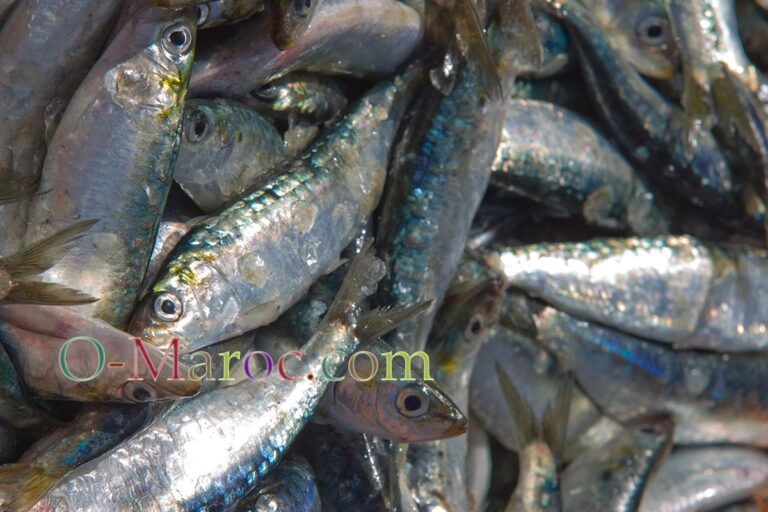I’m currently working on a glossary of fish names in French, Darija and Amazigh, for my cooking website. It’s a huge subject, because even within one language, the same fish names can refer to different species, and the same species can have several names.
The best example in English is bass and loup, which are the same species, or cod and morue, again the same species but fresh or dried.
When you add in Morocco the distinction between darija, amazigh and hassania (because yes, the Saharan peoples knew fish) and the fact that many fish were renamed by the Spanish, who were much more involved in the fishing industry than the French, you can imagine the complexity of the matter.
As a general rule, as with fruit and vegetables, anything that doesn’t have a local name was introduced by one of the colonisers or through late trade.
For local fish, it’s different. In the old days, names did not follow the scientific classification of the 17th century, so several different species could very well be called the same thing. Making a word-for-word translation of every known species of fish is therefore mission impossible.
But there was one case that intrigued me. And I started asking myself “stupid questions”, which helped me learn a lot.
This is the name of the sardine.
Because sardines are a local fish. It’s been around in the Mediterranean and the Atlantic since the very beginning, and I’m sure it was being caught and eaten long before the Spanish, Portuguese and French set foot in Morocco.
Yet the name of the sardine, in classical Arabic, in Darija as well as in Amazigh, is “sardine”. سردين in Arabic
The etymology of sardine would be “Sardinia”.
And the commonly accepted etymology of “Sardine” is the name given by the Greeks to this fish, which is very abundant on the coasts of Sardinia.
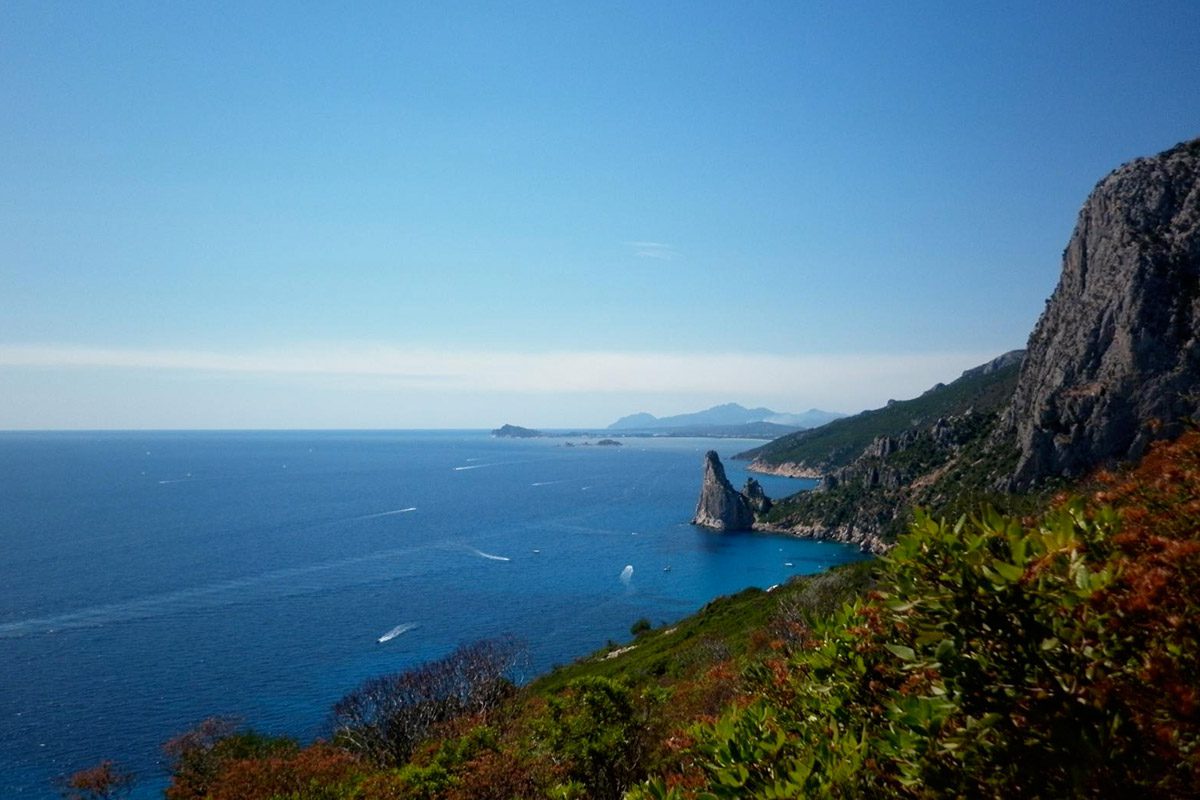
This is confirmed by Henriette Walter and Pierre Avenas in “La fabuleuse histoire du nom des poissons” (The fabulous story of fish names) :
The name sardine, from the Latin sardina, probably comes from the island of Sardinia (in Latin, Sardinia), around which this fish was caught in abundance in ancient times. According to Lacépède, sardines can be caught “in the Mediterranean, and particularly around Sardinia, from which it takes its name”. In support of this geographical etymology, it should be noted that in Italian, sardines are most often called sardina, and sometimes sarda, meaning “Sardinian, from Sardinia”.
But two things are important:
In Greek, sardines were referred to, by Aristotle (VI, 15) for example, by the name trikhis [sic], derived from thrix “hair”, because of the fineness of its bones.
The large Atlantic sardine is also known as pilchard, whose etymology is unknown.
Suffice it to say that I’m left wanting more, and the enigma remains unresolved.
And above all, I don’t understand how this name could have completely erased the word Amazigh, which certainly existed, including in more remote regions, further south too, that were not in sufficient contact with Mauretania Tingitana (the Roman province that encompassed Morocco) to change their vocabulary in this way.
Why give a place name to a common, little-valued fish?
I don’t mind that the Greeks, as they say, ended up naming this little fish after the island of Sardinia, just as today we call a round sandwich with minced meat a ‘Hamburger’, and that this name was used throughout the Mediterranean area, the Greek and Roman colonies.
But in fact, no.
First of all, sardines were caught all over the Mediterranean, not just in Sardinia. And at a time when refrigerated ships didn’t exist, fresh fish was eaten locally. Fish were certainly not transported beyond the Sardinian coast, unless they were very valuable and were preserved in brine or transported in tanks.
But sardines were considered a poor man’s food because of their abundance and small size.
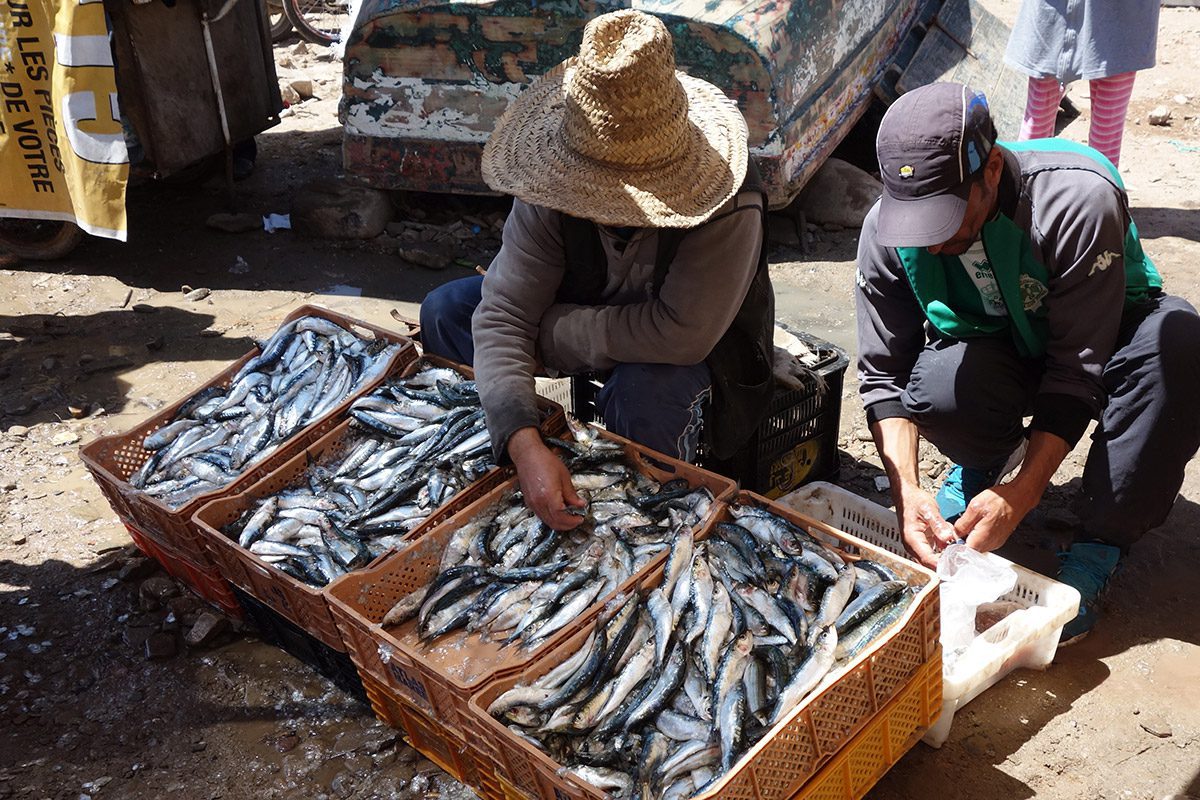
Why is it that this fish has suddenly become so important and valued as to have some sort of ‘PDO’ linked to a single island? That the name of the place should replace the name of the fish, a bit like “Champagne” replaced “sparkling white wine”?
So, like kids who go from “why” to “why”, I moved on to the next question.
Where does the name Sardinia come from?
And that’s very interesting.
Because in fact, we don’t know very much about it. We have three hypotheses, one of which is totally fanciful, and two that refer to the Berbers.
1 – The island of Sardus, the mythical ancestor
Chkoun (who is) Sardus ?
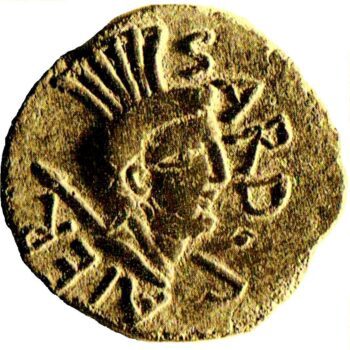
A Berber chief from North Africa (on the Libyan side) allegedly descended from Hercules, whose columns line the Straits of Gibraltar. His name in Amazigh is ⵚⵕⴷⵓⵙ ⴱⴰⵟⵔ .
According to Abbé André de Claustre, in his “Dictionnaire portatif de mythologie” (Portable dictionary of mythology), which can be found online at archive.org, Sardus founded a colony on this island and was deified as Pater Sardus.
He goes back to ancient authors who believe that Sardus invaded Sardinia with his troops from Libya, just as William the Conqueror invaded England.
The island, which in Greek was called Ichnusa, is said to have changed its name in honour of its conqueror. The cult of Sardus is very old, dating back to the Bronze Age.
Coins with this inscription have been found. So the Sardinians believed in their mythical ancestor just as much as the Aït Atta believe in Dada Atta.
2 – The name of a people of the sea, the Sardanes
We also know very little about the Sardanes, except that they took part alongside other Libyan peoples in the Egyptian struggle against the Hittites. Libyans again, who gave Egypt an Amazigh pharaoh, Sheshonq 1°, founder of the XXIInd dynasty in year I of the Amazigh calendar.
Whether we’re talking about Sardus or the Sardanes, we’re still using Amazigh vocabulary and in the Libyan area, so “in Berber country“.
So sardines have an Amazigh name?
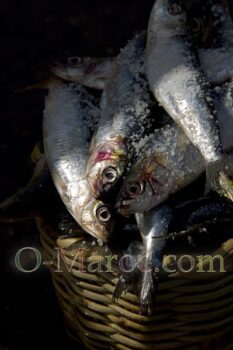
There are many possible hypotheses, each just as fanciful as the next:
- that the Sardanes, people of the sea, had a fish as their symbol,
- that Sardus Pater descended from a family of fishermen or pirates…
- that the sardine also symbolised a trait of character, that “Sardus” meant “the sardine man”…
But we’ll probably never know…
The only thing I know for sure is that if the name of Sardinia is Amazigh, then so is the word “sardine”.
This would explain why it is used everywhere in Morocco. And that it entered standard Arabic, almost certainly as a result of the Muslim conquests of North Africa.
This would explain why it replaced the Greek word (or words).
And therefore, that a local fish should be called by a local name, not a name ‘imported’ from the language of the colonisers. The word “sardine” did not replace the Amazigh name, it is Amazigh.
 A typo or syntax error? You can select the text and hit Ctrl+Enter to send us a message. Thank you! If this post interested you, maybe you can also leave a comment. We'd love to exchange with you !
A typo or syntax error? You can select the text and hit Ctrl+Enter to send us a message. Thank you! If this post interested you, maybe you can also leave a comment. We'd love to exchange with you !

